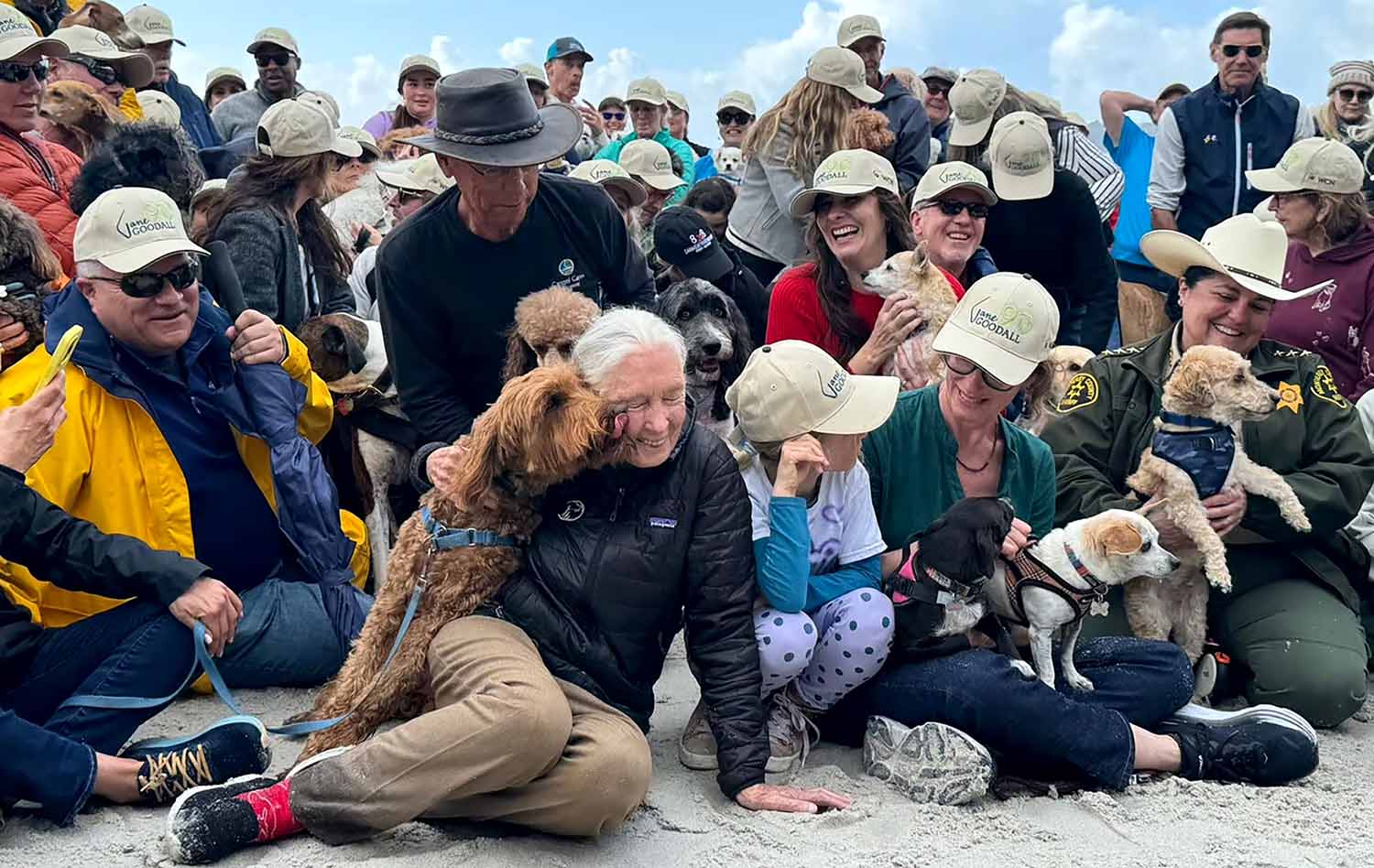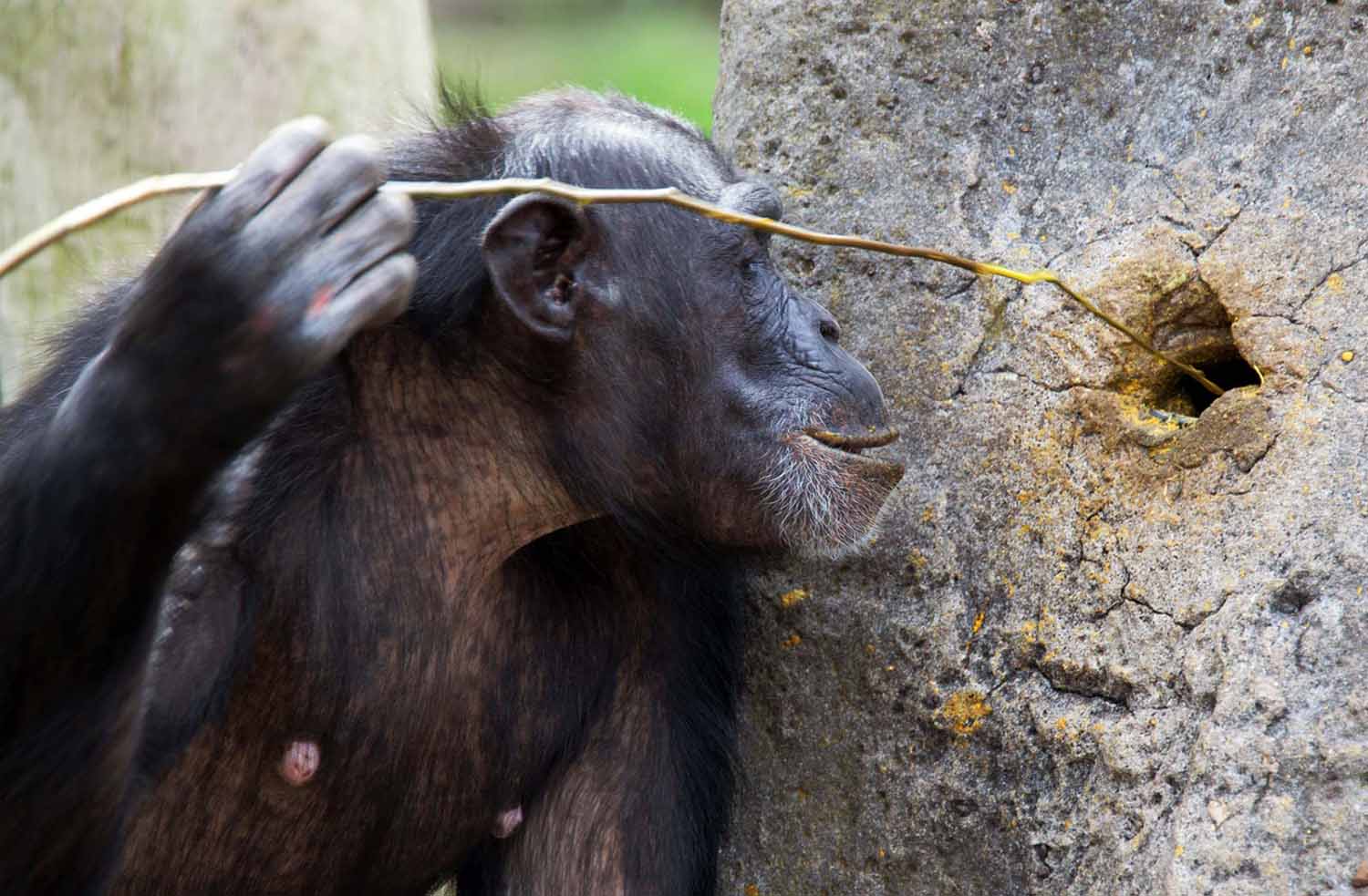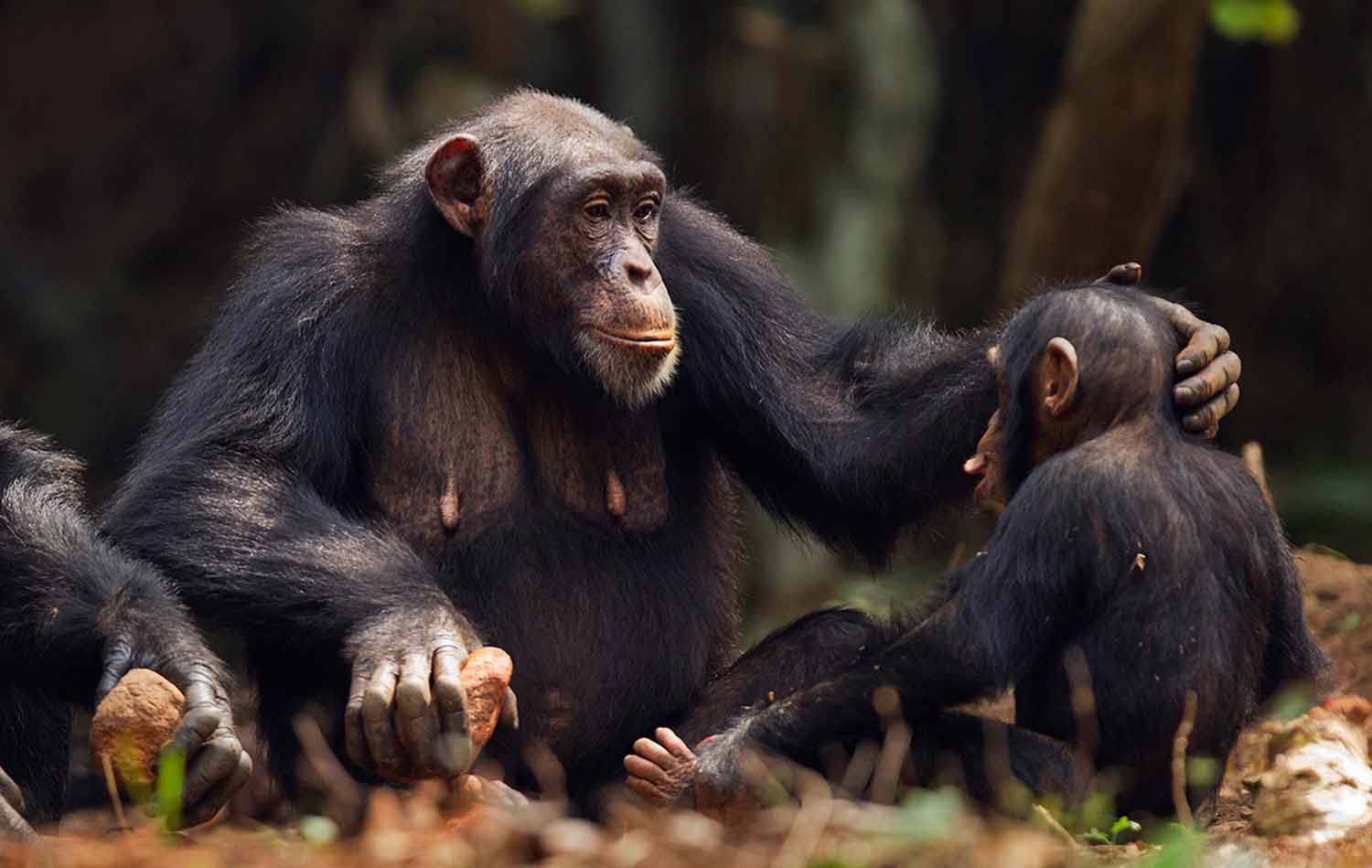A Hero Remembered
Jane Goodall was a champion for animals and a hero to scientists and others around the world.
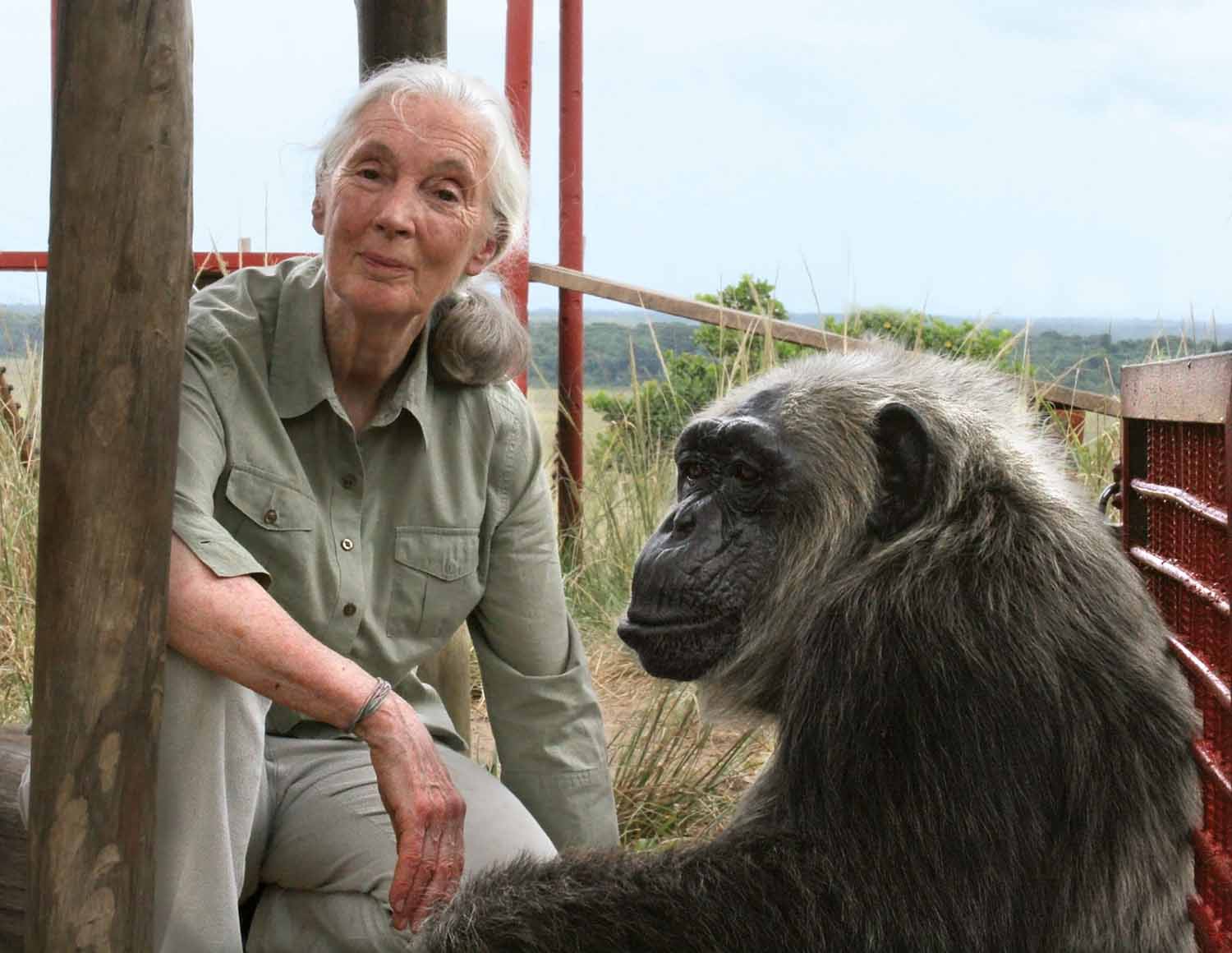
© Fernando Turmo/the Jane Goodall Institute
Jane Goodall sits with a chimpanzee named La Vieille in 2012.
Celebrated primatologist Jane Goodall has died. She was 91. Best known for her groundbreaking discoveries about chimpanzee behavior, Goodall dedicated much of her career to causes like environmentalism and animal welfare.
Goodall’s interest in animals began at an early age. She first observed wild animals and took notes about them as a child in England. It wasn’t long before she decided on a career in animal behavior. In 1960, when Goodall was 26, she was hired by the anthropologist Louis Leakey to study wild chimpanzees in what is now the African nation of Tanzania.
Goodall’s chimpanzee observations led to several discoveries. For example, she observed a chimpanzee named David Greybeard removing the leaves from a stick and then dipping the stick into a termite mound to capture the insects. This was the first time a scientist noted an animal using a tool.
“The reason why this was so exciting was because, at that time, it was thought by Western science that only humans used and made tools,” Goodall once explained. Scientists have since observed several other animals using tools.
Goodall found that each chimpanzee had its own personality and that chimps have complex emotions. This observation surprised some scientists, but Goodall later said she wasn’t surprised because she had noticed complex emotions in her childhood dog, Rusty.
“We all know that [dogs] can be happy, sad, fearful and that they’re highly intelligent,” she pointed out. Goodall’s discoveries led to a new understanding of chimpanzees and strengthened support for protecting their natural habitat.
Goodall, who became world famous, was at the forefront of the animal welfare and conservation movements. She founded the Jane Goodall Institute in 1977 to help promote conservation and, until her death, traveled the globe to talk about the importance of protecting the natural world.
Goodall’s tireless work for the planet and all living things made her a hero to people of all ages. After her death, tributes poured in from scientists, politicians, actors, and many more.
“Jane Goodall was the first to prove that an investigating scientist and a great ape living in the wild could become true friends,” said British scientist and broadcaster David Attenborough. “In doing so, she came to transform our understanding of chimpanzees.”
“Goodall’s legacy is not only in science but in the global movement she helped spark to protect nature and give hope for a better world,” said Will McCallum, co-executive director of the environmental group Greenpeace.
Click through the slideshow for photos from Jane Goodall’s life and career.
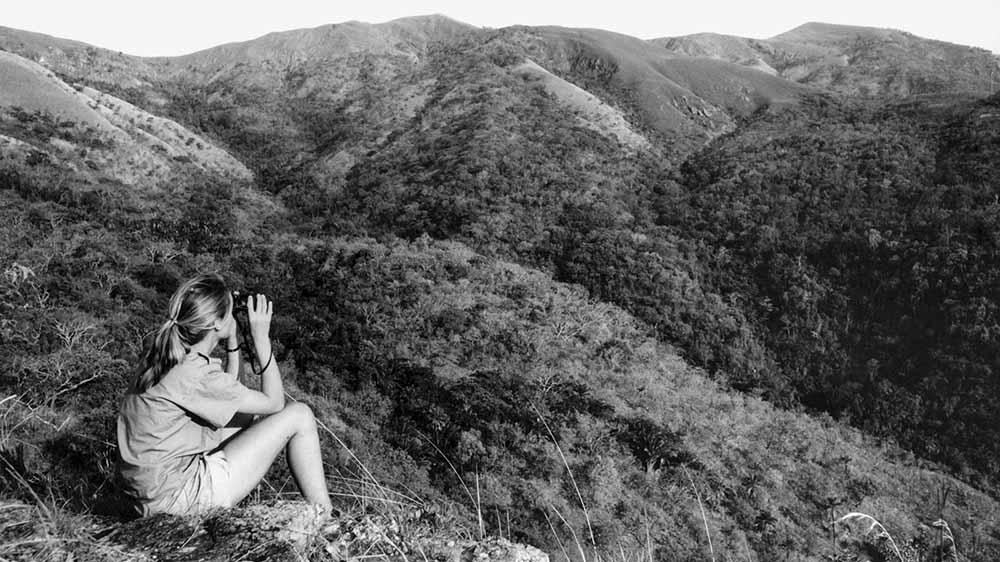
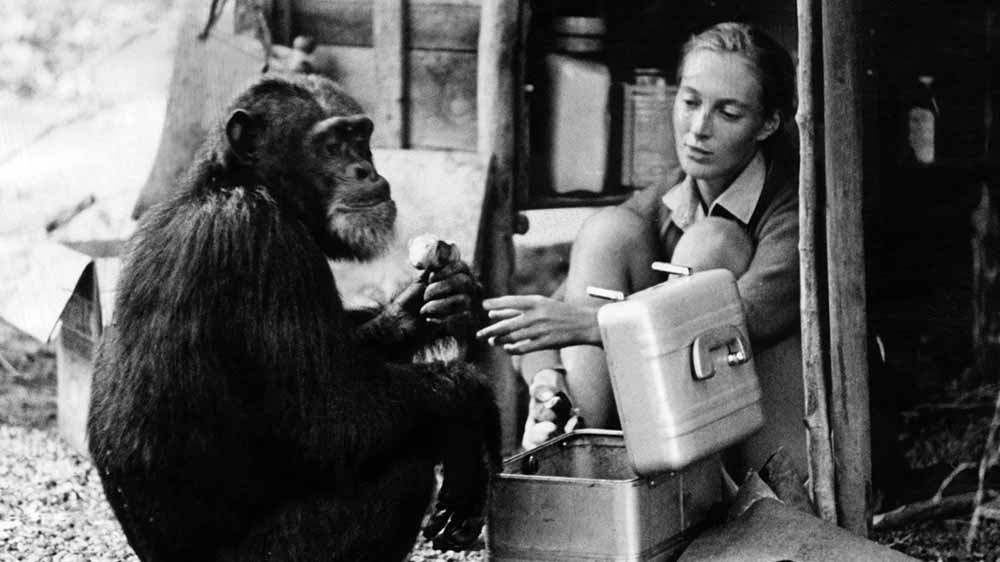
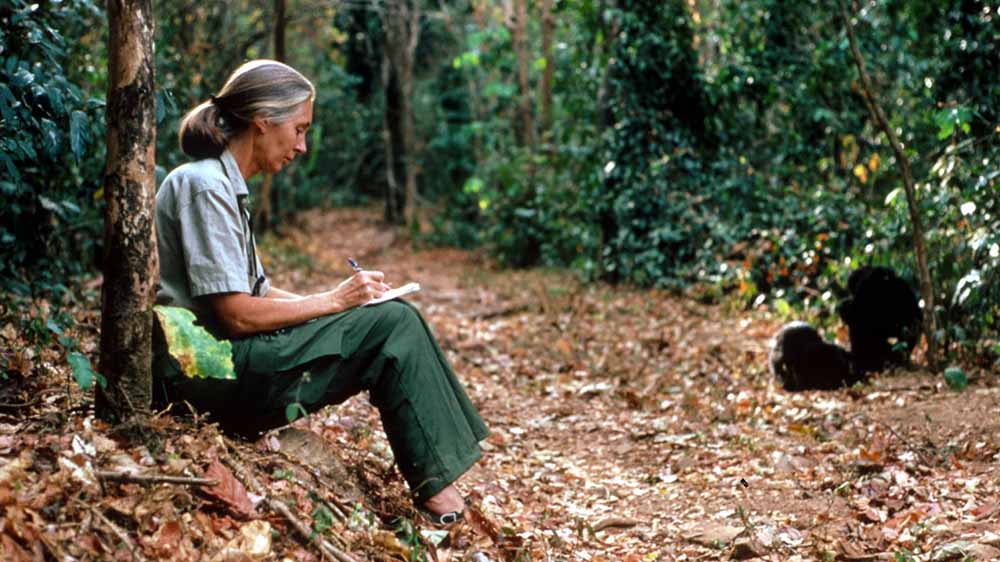
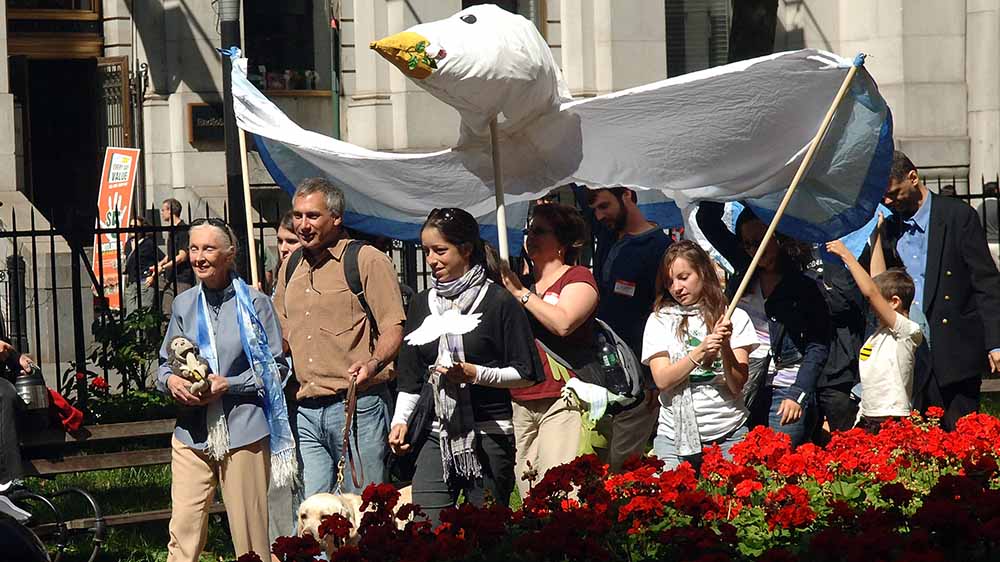
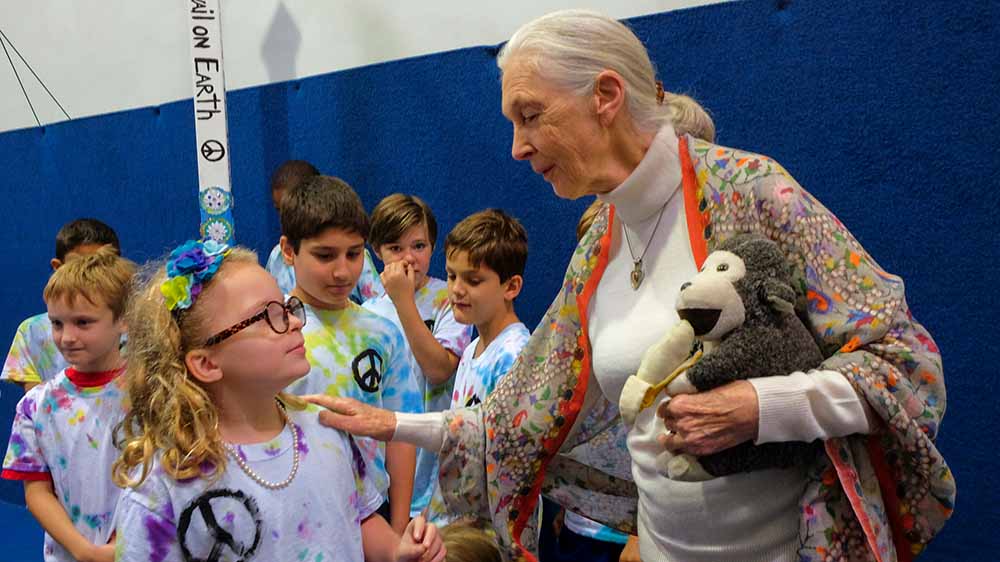
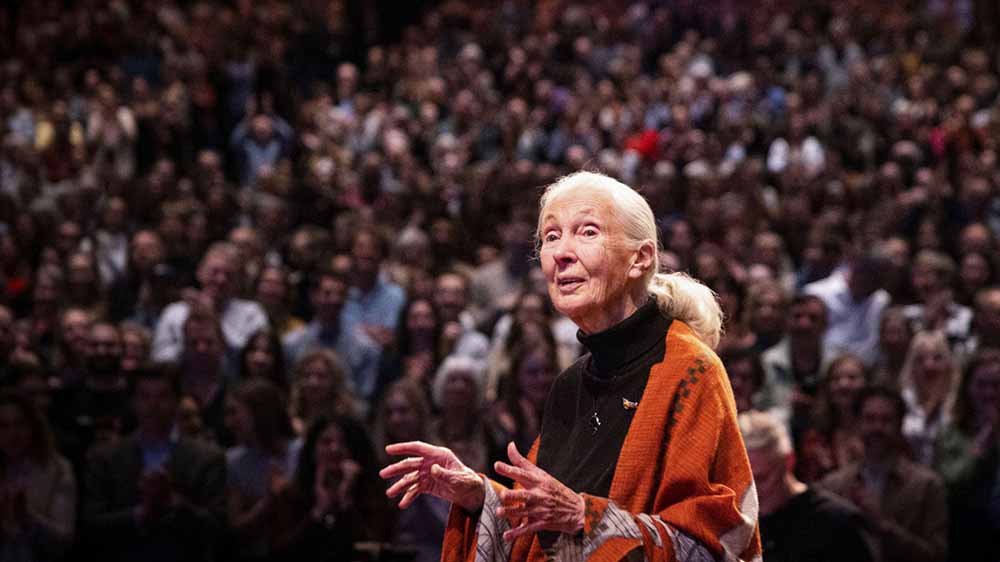
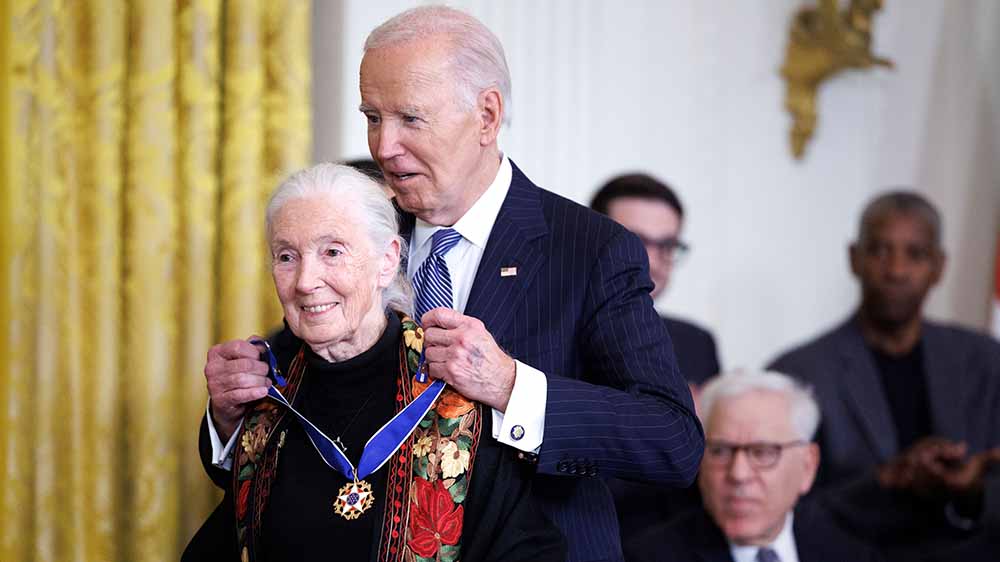
© Hugo van Lawick/the Jane Goodall Institute, © CSU Archives—Everett Collection/Alamy, © Penelope Breese—Liaison/Hulton Archive/Getty Images, © Duffy-Marie Arnoult—WireImage/Getty Images, © Jahi Chikwendiu—The Washington Post/Getty Images, © Ramon Van Flyman/Alamy, © Tom Brenner/Getty Images

